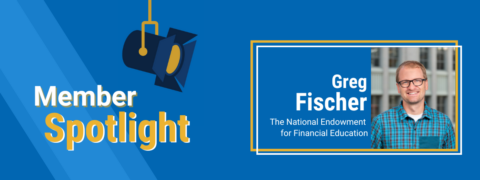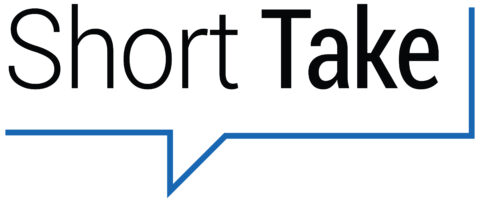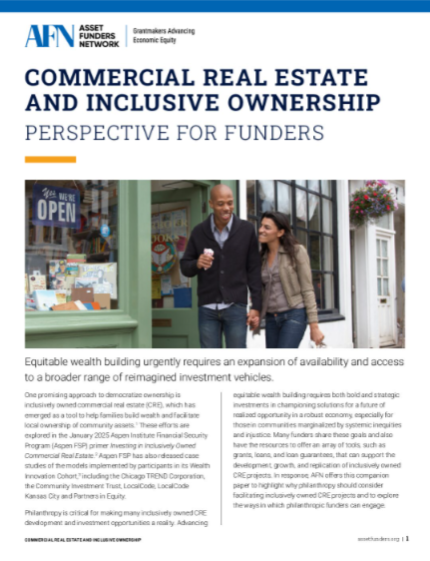 Meet our members! AFN’s greatest asset is our members—a diverse network of national, regional, and community-based foundations, financial institutions, and grantmakers—investing in advancing equitable wealth building and economic mobility. Check back each month and meet your peers!
Meet our members! AFN’s greatest asset is our members—a diverse network of national, regional, and community-based foundations, financial institutions, and grantmakers—investing in advancing equitable wealth building and economic mobility. Check back each month and meet your peers!
1: What is the mission of your organization and how is advancing equitable wealth building and economic mobility incorporated into the work?
The National Endowment for Financial Education (NEFE) champions effective financial education and aims to advance financial well-being, which we view as a life-long endeavor that incorporates education, systemic changes and execution of knowledge (all outlined in our Personal Finance Ecosystem). Improvement of one’s economic life is not solely based on the amount in a bank account, but also based on the ability to make informed, empowered decisions at different chapters of an individual’s life.
2: How does your organization bridge the racial wealth gap?
Addressing the inequalities that exist in underserved communities is engrained in all the work that we conduct at NEFE. Here are a few examples:
1. We determine whether a project addresses systemic inequality across socioeconomic status, race, and gender within the U.S. We give preference to studies investigating knowledge, skill, and wealth disparities, particularly among populations statistically more likely to face systemic barriers in improving their financial well-being.
2. The work of our two most recent visiting scholars—Stephanie Cote and Chloe McKenzie—have explored the inequalities that exist. Stephanie’s research is focused on the history of Native communities and Chloe’s work has explored nonparticipation and financial trauma, particularly for Black women.
3. Administratively, we created a new position at NEFE—the Senior Director of Equity—and hired Michelle Samuels-Jones, Ed.D. She will focus on the implementation and advancement of research-based practices to address structural, programmatic, and leadership needs, promoting diverse, inclusive, and thriving environments.
s
3: Where are we lacking investments as a sector that will result in greater economic equity, and how can we address the gap?
We lack funding for quality research that can influence policy change. We must continue to monitor, analyze, and report on how underserved demographics are impacted by current policies and decisions. Additionally, investing in accessible, high-quality, and impactful financial education for those who need it most can help address economic equity. Lastly, investments are not only monetary; they also come in the form of thought leadership, partnerships, networking, and the exchange of information that can help drive change.
4: Share a question you would like to raise to your AFN community.
This comes from an issue I’ve been grappling with – and I would honestly love to hear the feedback of others: Does Financial Education have a place within the economic empowerment of entrepreneurs? If so, how can the field meet those needs?
5: What have been some of the biggest benefits of being part of the Asset Funders Network?
NEFE is still relatively new to the AFN community, as we just joined in March of 2023. While I received AFN emails before that, I started discussing the potential Professional Development value of the network for others with fellow team members at NEFE. On a personal level with my position, getting more acquainted with the philanthropic industry in the context of our partnership work has been positive. I still have a lot to learn from the efforts of others that will help me improve our partnership work. Moreover, I’m following the Carolina chapter as one of our post-secondary partnerships is focused on the Appalachian region, which includes both North and South Carolina. I’m also looking forward to AFN’s upcoming webinar series on Financial Wellness since it fits perfectly with NEFE’s mission.
6: What event or activity in your community have you most enjoyed resuming in the past year?
I have an upcoming curling tournament (called a Bonspiel) in Leadville, CO, which should be lots of fun, regardless of our team’s results. It’s the first time I’ve registered for a curling tournament since 2018 – and the outdoor factor at 10,000ft elevation, in January no less, adds to the fun.
About Greg Fischer, The National Endowment for Financial Education (NEFE)
I came to NEFE about two years ago to spearhead the creation of a new research-to-practice initiative designed to understand better effective financial education activities directed at specific populations around the US. This work is premised on the concept that financial education works, but it isn’t working for everyone. We want to test interventions to ascertain the best practices on what works best for specific populations. To do so, I look to partner with other organizations with a broad reach and a passionate commitment to improving diverse communities’ financial lives and well-being. Since NEFE is a private operating foundation, we approach engagement with other organizations for this initiative differently than traditional grantmaking models. I establish highly collaborative partnerships where the NEFE team and I actively contribute as subject matter experts in financial education.


